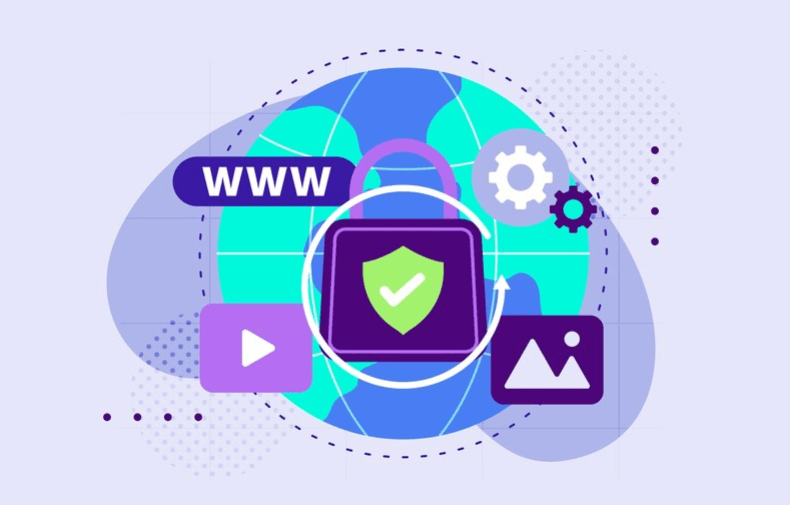In today’s digital age, where information flows freely and privacy concerns are at an all-time high, the concept of anonymous domain registration has gained significant traction.
As individuals and businesses alike strive to protect their personal and corporate data, anonymous domain registration offers a valuable solution.
This article delves into the intricacies of anonymous domain registration, explaining what it is, how it works, and why it’s crucial for maintaining privacy and security in the online world.

Also Read: Best Enterprise WordPress Hosting Providers
What is Anonymous Domain Registration?
Anonymous domain registration is a service provided by domain registrars that allows individuals and organizations to register a domain name without revealing their personal information.
When you register a domain, certain information such as your name, address, email, and phone number typically becomes part of the public WHOIS database. This database is accessible to anyone, including potential hackers, spammers, and other malicious actors.
Anonymous domain registration masks this personal information, ensuring that the domain owner’s identity remains confidential.
Also Read: How to Choose Best Multiple Domain Hosting Provider?
How Does Anonymous Domain Registration Work?
When you opt for anonymous domain registration, the domain registrar replaces your personal details in the WHOIS database with the contact information of a proxy or privacy service provider. This service provider acts as an intermediary, handling communication on behalf of the domain owner. Here’s a step-by-step breakdown of how it works:
Also Read: How to Host a Website Anonymously?
Why We Need Anonymous Domain Registration?
Also Read: Best DMCA Ignored Hosting in Singapore
Mechanics Behind Anonymous Domain Registration
To understand the mechanics behind anonymous domain registration, it’s essential to grasp the role of the WHOIS database and the specifics of how privacy services operate.

WHOIS Database
The WHOIS database is a publicly accessible directory that contains details about the ownership of domain names. When a domain is registered, information such as the registrant’s name, address, email, and phone number is stored in this database. This transparency is beneficial for accountability and dispute resolution but poses significant privacy risks.
Privacy Service Providers
Privacy service providers or proxy services act as intermediaries between the domain owner and the outside world. These providers input their contact information in the WHOIS database instead of the registrant’s personal details. Here’s how they operate:
Also Read: What is the difference between hosting and offshore hosting?
Legal and Ethical Considerations
While anonymous domain registration provides significant privacy benefits, it’s also essential to consider the legal and ethical implications.
Compliance with Laws
Also Read: Best Cloud VPS Hosting In Netherlands
Ethical Use
Also Read: Cheap AMD Ryzen Dedicated Server in Netherlands
Benefits of Anonymous Domain Registration
Also Read: How to Buy Domain with Crypto Payment?
Potential Drawbacks and Limitations
Despite its numerous advantages, anonymous domain registration has some potential drawbacks:
Want to take your privacy even further? 🌐 Check out our detailed guide on how to create a truly anonymous website by using anonymous VPS hosting and learn how to stay completely hidden online. Perfect if you’re serious about full digital anonymity!
Looking to stay ahead of the most advanced cyber threats? Don’t miss our in-depth guide on the Best AI Tools for Cybersecurity. This article breaks down the most powerful AI-driven platforms, how they work, why you need them, and which ones offer free trials. Whether you’re managing enterprise infrastructure or protecting personal data, this list is a must-read for anyone serious about next-gen security.
Looking for a more private and secure VPS hosting solution? Explore our in-depth guide on how to setup anonymous VPS and discover step-by-step instructions to host websites or applications without revealing your identity. Learn about offshore servers, DMCA-ignored hosting, crypto payments, and advanced privacy practices that can take your VPS experience to the next level.
When prioritizing online privacy and freedom from DMCA takedowns, choosing the right registrar is just as important as selecting an anonymous hosting provider. For readers looking to pair secure hosting with optimal domain protection, our comprehensive article on Best Offshore Domain Registrars walks through top offshore registrars, pricing, privacy features, and why these services matter for anyone building a private, resilient online presence.
Also Read: Best Bare Metal Dedicated Server in Netherlands
FAQs
What is the difference between private and anonymous domain registration?
Private domain registration typically masks the registrant’s details in the WHOIS database, showing the information of a privacy service instead. Anonymous domain registration often involves a higher level of anonymity, where even more stringent measures are taken to protect the registrant’s identity and reduce exposure to unwanted communications.
How much does anonymous domain registration cost?
The cost of anonymous domain registration varies by registrar and the level of service provided. Generally, it ranges from $5 to $15 per year in addition to the regular domain registration fee. Some registrars offer it as part of their standard package, while others charge an additional fee.
Can anonymous domain registration protect against all types of cyber threats?
While anonymous domain registration significantly enhances privacy and reduces the risk of certain cyber threats, it is not a foolproof solution. It primarily protects against spam, phishing, and social engineering attacks by masking personal information. However, comprehensive cybersecurity measures are still necessary to protect against other threats like malware, DDoS attacks, and hacking attempts.
Is anonymous domain registration legal?
Yes, anonymous domain registration is legal and complies with ICANN regulations and various data protection laws, including GDPR. However, it is important to use the service responsibly and not engage in illegal activities under the guise of anonymity.
Can I transfer a domain with anonymous registration to another registrar?
Yes, you can transfer a domain with anonymous registration to another registrar. The process is similar to transferring a regular domain, but you need to ensure that the privacy service is continued with the new registrar or that you set up a new privacy protection service after the transfer.
Also Read: Best IPTV Hosting Providers
Conclusion
In an era where online privacy is increasingly under threat, anonymous domain registration offers a vital safeguard for individuals and businesses alike. By protecting personal information from public exposure, it enhances security, reduces the risk of cyberattacks, and complies with stringent data protection regulations.
However, it’s essential to use this service responsibly, balancing the need for privacy with ethical considerations and legal compliance. As we navigate the complexities of the digital world, anonymous domain registration stands out as a crucial tool in the quest for online privacy and security.


![IPTV GitHub Playlist 8000 Worldwide [current_date format='Y, M'] - [M3U Playlist for Free] IPTV GitHub Playlist](https://qloudhost.com/blog/wp-content/uploads/2025/02/IPTV-GitHub-Playlist-375x195.jpg)
![How to Start an IPTV Website In [current_date format='Y']? Step-by-Step Guide How to Start an IPTV Website](https://qloudhost.com/blog/wp-content/uploads/2026/02/How-to-Start-an-IPTV-Website-375x195.jpg)

Leave a Comment